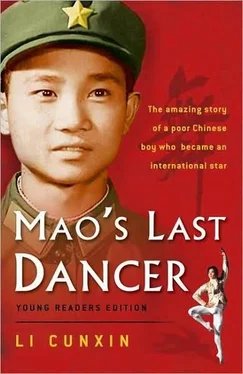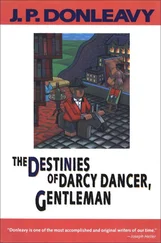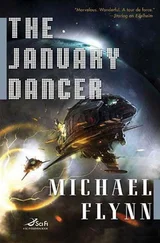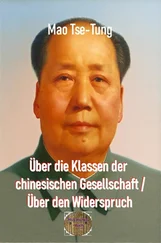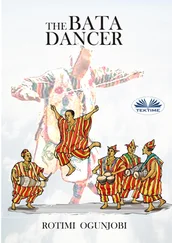Cunfar always won our wrestling matches because he was stronger than me. No matter how hard I tried I'd still lose. But I was a faster runner. I'd make him mad by running away from him, calling him Cunfar instead of the more respectable "Wuga" or Fifth Brother which I was meant to use. He'd stop chasing me because he had asthma, and by the time he caught his breath I would be miles away. Then I'd make him even angrier by copying his coughs and his strange running style. He'd pick up stones to throw at me and swear to kill me ten times over if he ever caught me. "You'll have a silver beard all the way to the floor by the time you catch me!" I'd call back.
Cunfar would often have severe coughs and asthma when we were growing up. My parents tried everything to cure him. Once we had to find a young rooster and feed it a mixture of millet and cooked toad. Twenty-four hours later my niang cooked the rooster and Cunfar had to eat everything, including the bones. I wanted to eat his rooster so badly that I stole some from him. I don't know whether it was the toad or the rooster that worked, but a month later his asthma had gone.
So I grew up with my brothers, playing outside, under the sun, in the rain and even in the freezing winter-a wild street boy. Summer was my favourite time because I could play and run in the village and the countryside with nothing much on. Except in winter, I hardly ever wore any shoes for the first nine years of my life.
One day, late in the afternoon, the sun was setting and we were playing hide-and-seek. I was climbing on people's walls and roofs, trying to find a good place to hide. I climbed over our six-foot-high stone wall, over our toilet, trying to get behind the three-foot clay pots where the pigs' food was stored. One of the pots stored fermented millet waste and the other contained wheat shells from the soy sauce factory. But this day my foot slipped on the loose stones of the wall and I lost my balance. I fell headfirst, right into the pot of fermented millet waste. It was thick, gooey stuff and I was only about seven or eight years old and only just about a foot taller than the pot.
Our niang was busy cooking dinner and my fourth brother was her windbox pusher. By chance, Cunsang looked out and noticed the shadow of a pair of feet struggling upside down on the toilet wall. He immediately rushed to the pots and pulled me out. "What are you doing? You could have found a better place to die than the millet waste pot!" he said.
I was gasping for air, covered with the thick, gooey millet waste, seconds away from losing my life.
But nothing would stop our outdoor activities. The streets, the riverbank, the dam and the hilly fields were our playgrounds. We made our own spinning tops with carved wood and played games with marbles. Of course, we often had to help our dia too, working the small piece of land that the commune allocated to us. Sometimes we worked on it in the rain, trying to capture as much rainwater as possible. We used all the buckets and pots we had. In winter though, we didn't have to help our dia on the land, because it was always frozen hard, and the fields were covered with snow. I loved playing in the snow. We built snowmen and had snowball fights, chasing each other wildly around in the thick, thick snow. Often we would fall on the uneven roads or fields. We would roam wild, for hours, in this white world, in the vast open space of the fields, with the snow still falling around us. We would return home covered with snow, sometimes with our clothes torn, our ears, nose, hands and feet bright red from the cold, and our bodies steaming with sweat under our quilted cotton clothes. More washing and mending for our niang.
One game I especially liked was "fighting on the one-legged horse". We'd divide into two groups. Everybody had to hop on one leg and try to knock their opponent off-balance with the other bent knee. If you were knocked down you were out. We usually played it on hills to make it more difficult. Another game we played used an empty can or half of a used corncob as the "object". Every player had a bamboo stick. The middle player had to use his stick to push the object back into a hole, but any player could strike the object and hit it away. Sometimes both the object and the bamboo sticks would be flying frantically at each other and the game would become dangerous. We liked using an empty can as the object much more than the corncob because of the noise the metal made, but we didn't often have that luxury.
One Sunday, in the middle of a summer drought, my brothers and I had just finished helping our dia carry buckets of water to the yam crops. The earth was dry and the ground was cracked. We were sweating and the hot sun burnt our skin, so our dia allowed us to go to the dam near by to cool down. I was the fastest runner and when I got there some of the older boys of the village were already swimming and splashing in the middle of the dam. The water level was low. The other boys were treading water, so it looked like they were standing and, without thinking, I dived in. I had never learnt to swim, and I panicked when I couldn't touch the bottom. Every time I tried to yell for help, I would swallow some water, my head going up and down, up and down. Luckily, one of my cousins was with the group of older boys and he noticed me struggling and quickly swam to me and pulled me out of the water. A minute later I would have drowned.
On another hot day that summer, a popsicle seller rode his bicycle into our village. This was a rare treat! Several of my friends had money to buy popsicles, so I ran to my niang and asked her for three fen.
"I don't have a single fen," she replied.
I knew it was true. She never had any money.
I ran to my grandmother's house. Na-na, our dia's mother, was eighty-four years old by then. We loved our na-na. She often shared treats with us. She had no teeth left, so she could only eat soft food and she often asked us to peel her apples or pears so she could scrape them with a spoon, and she would let us eat the skin and the left-overs. Her eyesight was bad and she was hard of hearing: many times she got us all mixed up, calling us the wrong name. Zhang guan li dai, we called it: putting Zhang's hat on Li. She often complained that things were not as good as in her era. She disliked the chaos and change caused by Mao's Cultural Revolution. She used to save her falling hair, twirl it into a little ball, and exchange it for money or sometimes sewing needles. She just might have a few spare fen, I thought.
"Na-na, would you like a popsicle?" I didn't want to ask her for the three fen too bluntly.
"No, they are too cold for me. I haven't had a popsicle for years," she replied.
"Niang doesn't have three fen for me to buy a popsicle," I said. "My dia has the money. Can you lend me three fen?" I asked, and quickly added, "All my friends have bought popsicles!"
Na-na searched around, but had no change, only a one-yuan note.
"I would be happy to take a yuan if you could spare it. I'll pay you back later! I promise!"
She thought this was very funny, me having the audacity to borrow one whole yuan, and saying I could possibly pay her back. "Ah, one yuan!" She laughed and laughed. I was sure that if she'd had any teeth she would have laughed them off. But she ended up giving me the yuan anyway and I kept my promise. Of course I only used three fen, which I repaid a few days later. I picked up as much scrap metal and gathered as much hair as I could and sold it to the commune scrap-shop for a few fen a time. When I had saved ten fen, I would change them into a note and hide them between different pages of my copy of Chairman Mao's Red Book. After I'd paid Na-na back, I surprised my niang by producing the rest of my savings to buy some bean curd, which she loved. She questioned me at first-she thought I had stolen the money from my dia.
Читать дальше
